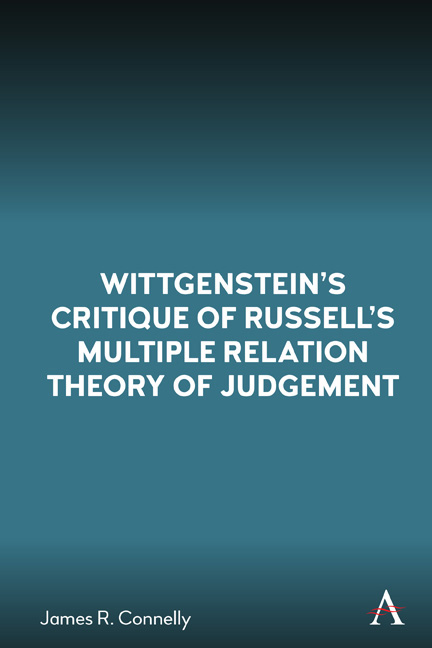3 - Russell’s Paralysis
Published online by Cambridge University Press: 06 April 2021
Summary
The Logical Interpretation
In Chapter 2, we explicated the scholarly controversy surrounding Wittgenstein's critique of the MRTJ by surveying a selection of the most prominent and influential interpretations thereof, including those of Griffin and Sommerville, Stevens, Hanks, Pincock, Landini and Lebens. In this section, I will start out by developing my own reading of Wittgenstein's critique of the MRTJ, before moving on, in subsequent sections, to defend it in light of, and critically respond to, each of the alternative readings canvassed in Chapter 2. Responding to each of the alternatives, in turn, will also enable me to flesh out further the integral details of my reading both of Wittgenstein’s objections and, ultimately, of Russell's paralysis. While many of these alternative interpretations enjoy significant merits, they also exhibit crucial flaws and inadequacies, and thus none of them provides a complete or satisfactory account of Wittgenstein's critique. By building on what is correct in these interpretations as well as identifying and rejecting their mistakes, I thus aim to articulate and defend my own interpretation of Wittgenstein's critique, which I call the logical interpretation (LI).
According to LI, Wittgenstein's critique of Russell's work in the period May–June 1913 comes in three thematically and chronologically distinctive waves (or phases). Only the second and third of these waves directly concern the MRTJ. Considering the first wave of criticism, however, will provide integral background philosophical context in terms of which to frame and understand both the nature and content of Wittgenstein's subsequent criticisms, as well as how it is he came to be interested in, and stimulated to offer criticisms of, the MRTJ in the first place, at this time in particular.
The first wave of Wittgenstein's criticisms is more broadly philosophical in nature and can be dated to on or shortly before 14 May 1913. As Blackwell and Eames note, the first reference to Wittgenstein's criticisms occurs in a 14 May letter from Russell to Ottoline Morrell, in which Russell explains that Wittgenstein ‘was shocked to hear I am writing on theory of knowledge – he thinks it will be like the shilling book, which he hates’ (Blackwell and Eames 1992, xix; Russell to Morrell #775).
- Type
- Chapter
- Information
- Publisher: Anthem PressPrint publication year: 2021

